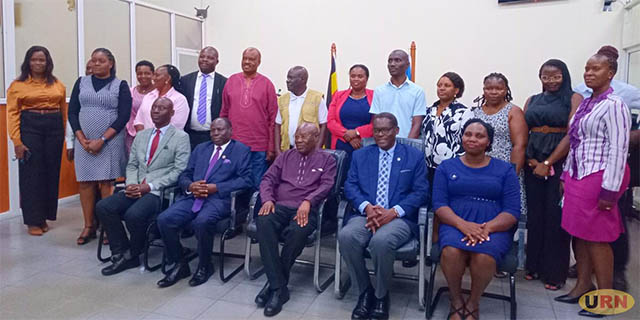
Kampala, Uganda | THE INDEPENDENT | The resolution of 168 pending complaints before the Electricity Dispute Tribunal (EDT) is uncertain following the expiry of the tenures of the Tribunal’s Chairperson and Vice Chairperson.
On Thursday, the Ministry of Energy and Mineral Development officially bid farewell to Charles Okoth-Owor, the outgoing Chairperson of the Tribunal, and his Vice, Anaclet Turyakira. Okoth-Owor served from 2003 until June 2024, while Turyakira’s term spanned from 2012 to July 2024.
Slyvia Cheptoris, the Tribunal’s Registrar, revealed that their tenure expiry coincided with a backlog of 168 unresolved complaints involving 591 plaintiffs, 168 defendants, and 756 litigants.
“Some cases involve high-value or complex issues, while others affect large communities. The Tribunal remains fully engaged with business from 9:00 a.m. to 5:00 p.m. on working days, conducting an average of 2 to 3 hearings per day,” Cheptoris explained.
In an interview with URN, Okoth-Owor expressed that while the Minister of Energy and Mineral Development is expected to appoint a new team to handle incoming cases, the outgoing team may need to be offered a three-month post-retirement contract to clear the existing backlog of cases.
Sidronious Okaasai Opolot, the Minister of State for Energy, acknowledged that the ongoing government merger and rationalization of Ministries, Departments, and Agencies (MDAs) requires consolidating all tribunals into a single body.
However, he noted that the timeline for this process remains unclear. In the meantime, discussions are underway with the outgoing team to ensure the completion of cases due for judgment.
The Tribunal addresses disputes related to electricity sector regulation, including licensing, tariffs, power generation, transmission, and distribution, as well as compensation for civil wrongs and breaches of statutory and contractual duties.
Common litigants include the Electricity Regulatory Authority (ERA), the Attorney General, UETCL, UEDCL, Umeme Ltd, independent power producers, factories, and companies, institutions such as schools and hotels, and individual complainants.
Established under Sections 93 and 94 of the Electricity Act of 1999, the Tribunal is a specialized adjudicatory body similar to the Tax Appeals Tribunal and the Industrial Court that complements traditional courts.
The Tribunal comprises two judicial members qualified to serve as High Court judges, as stipulated in Section 94, and five technical members by Section 96. Section 112 (1) of the Act provides for a Registrar, who must be qualified to serve in the High Court.
****
URN
 The Independent Uganda: You get the Truth we Pay the Price
The Independent Uganda: You get the Truth we Pay the Price



